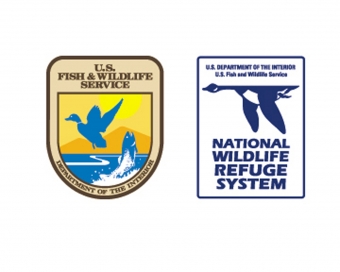- Education Topics
- Achievement Gap
- Alternative Education
- American Education Awards
- Assessment & Evaluation
- Education during COVID-19
- Education Economics
- Education Environment
- Education in the United States during COVID-19
- Education Issues
- Education Policy
- Education Psychology
- Education Scandals and Controversies
- Education Reform
- Education Theory
- Education Worldwide
- Educational Leadership
- Educational Philosophy
- Educational Research
- Educational Technology
- Federal Education Legislation
- Higher Education Worldwide
- Homeless Education
- Homeschooling in the United States
- Migrant Education
- Neglected/Deliquent Students
- Pedagogy
- Sociology of Education
- Special Needs
- National Directories
- After School Programs
- Alternative Schools
- The Arts
- At-Risk Students
- Camps
- Camp Services
- Colleges & Universities
- Counties
- Driving Schools
- Educational Businesses
- Financial Aid
- Higher Education
- International Programs
- Jewish Community Centers
- K-12 Schools
- Language Studies
- Libraries
- Organizations
- Preschools
- Professional Development
- Prom Services
- School Assemblies
- School Districts
- School Field Trips
- School Health
- School Supplies
- School Travel
- School Vendors
- Schools Worldwide
- Special Education
- Special Needs
- Study Abroad
- Teaching Abroad
- Volunteer Programs
- Youth Sports
- For Schools
- Academic Standards
- Assembly Programs
- Blue Ribbon Schools Program
- Educational Accreditation
- Educational Television Channels
- Education in the United States
- History of Education in the United States
- Reading Education in the U.S.
- School Grades
- School Meal Programs
- School Types
- School Uniforms
- Special Education in the United States
- Systems of Formal Education
- U.S. Education Legislation
- For Teachers
- Academic Dishonesty
- Childcare State Licensing Requirements
- Classroom Management
- Education Subjects
- Educational Practices
- Interdisciplinary Teaching
- Job and Interview Tips
- Lesson Plans | Grades
- Professional Development
- State Curriculum Standards
- Substitute Teaching
- Teacher Salary
- Teacher Training Programs
- Teaching Methods
- Training and Certification
- For Students
- Academic Competitions
- Admissions Testing
- At-Risk Students
- Career Planning
- College Admissions
- Drivers License
- Educational Programs
- Educational Television
- High School Dropouts
- Higher Education
- School Health
- Senior Proms
- Sex Education
- Standardized Testing
- Student Financial Aid
- Student Television Stations
- Summer Learning Loss
Edwin B. Forsythe National Wildlife Refuge

Basic Information
Address: PO Box 72
800 Great Creek Road
Oceanville, NJ 08231
Phone Number: 609-748-1535
Fax Number: 609-748-2731
Email: sandy_perchetti@fws.gov
Director: Sandy Perchetti
Additional Information
Causes Served: Environment
Ages for Volunteer: 16 up
Hours of Service: varies
Mission Statement:
The Mission of the National Wildlife Refuge System is to administer a national network of lands and waters for the conservation, management, and where appropriate, restoration of the fish, wildlife, and plant resources and their habitats within the United States for the benefit of present and future generations of Americans.
Philosophy/Belief Statement:
Guiding Principles of the National Wildlife Refuge System:
We are land stewards, guided by Aldo Leopold's teachings that land is a community of life and that love and respect for the land is an extension of ethics. We seek to reflect that land ethic in our stewardship and to instill it in others.
Wild lands and the perpetuation of diverse and abundant wildlife are essential to the quality of the American life.
We are public servants. We owe our employers, the American people, hard work, integrity, fairness, and a voice in the protection of their trust resources.
Management, ranging from preservation to active manipulation of habitats and populations, is necessary to achieve Refuge System and U.S. Fish and Wildlife Service missions.
Wildlife-dependent uses involving hunting, fishing, wildlife observation, photography, interpretation, and education, when compatible, are legitimate and appropriate uses of the Refuge System.
Partnerships with those who want to help us meet our mission are welcome and indeed essential.
Employees are our most valuable resource. They are respected and deserve an empowering, mentoring, and caring work environment.
We respect the rights, beliefs, and opinions of our neighbors.
Program History:
IMAGINE banding birds, conducting wildlife surveys, leading a tour, or restoring fragile habitat. Our volunteers perform a wide variety of tasks. Some work full-time, some just a few hours a week or month, or during a particular season or special event.
Events:
National Public Lands Day, Earth Day, Make a Difference Day, Hooked on Fishing, Not on Drugs, Wing Ding Nature Fest
Additional Information:
The Edwin B. Forsythe National Wildlife Refuge actively protects and manages more than 47,000 acres of southern New Jersey coastal habitats for migratory birds. Forsythe is one of more than 550 refuges in the National Wildlife Refuge System administered by the U.S. Fish and Wildlife Service. The National Wildlife Refuge System is a network of lands and waters managed specifically for the protection of wildlife and wildlife habitat and represents the most comprehensive wildlife resource management program in the world.



